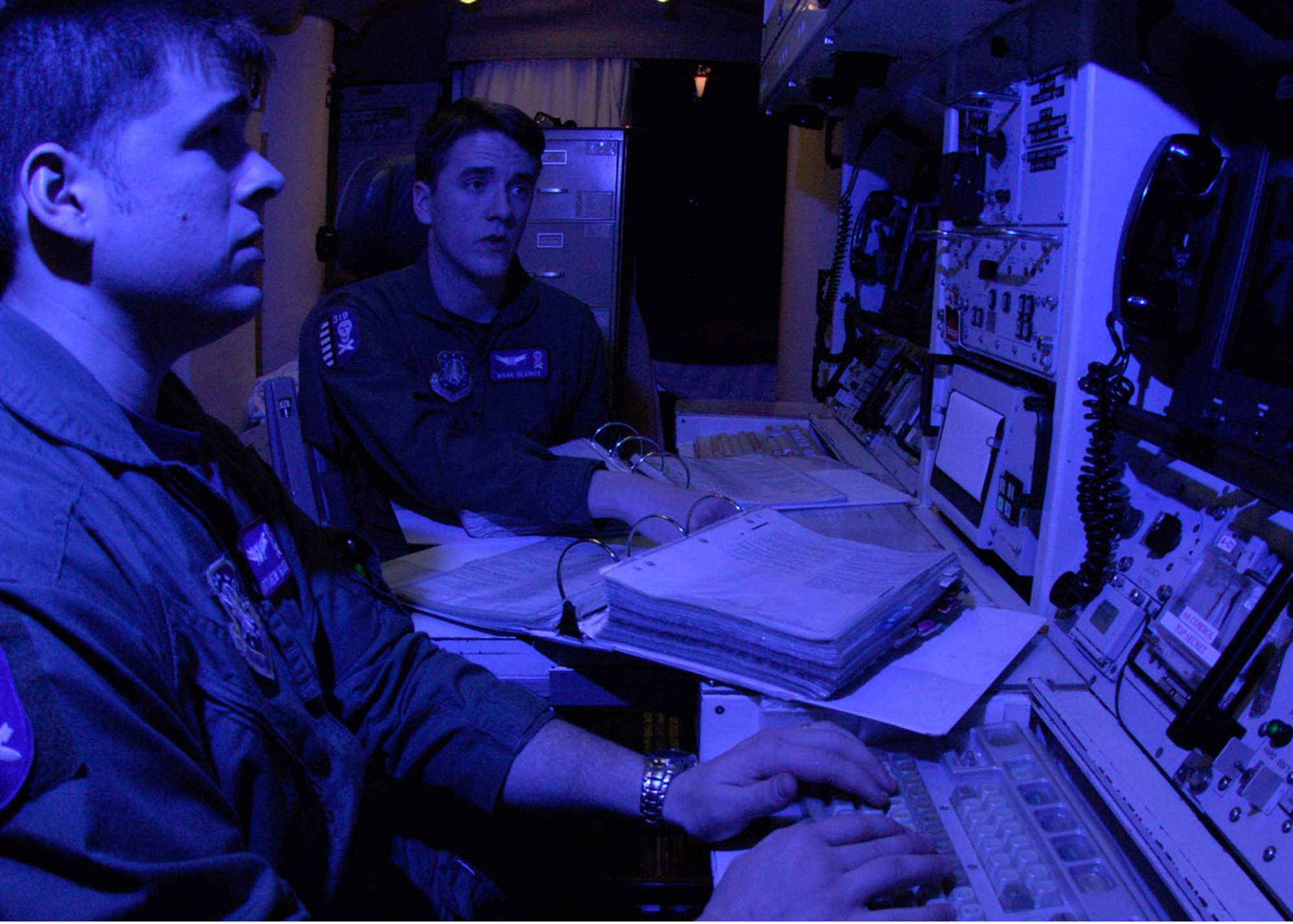
Remember when you took your driver’s test and had to answer all those questions about who had the right-of-way at an intersection? If you’ve been paying attention in recent weeks, you know that the Air Force is investigating nearly half of the 200-airman force that commands the 150 nuclear-tipped Minuteman III missiles at Montana’s Malmstrom Air Force Base for allegedly cheating, or tolerating those who did, on their monthly proficiency tests.
These tests, no surprise, are tougher than driver’s ed.
A launch officer and instructor who left the Air Force in 2011 has provided questions representative of those he says he asked his airmen about the missiles they were monitoring. To help you understand their language, you need to know that each launch-control crew is in a numbered Launch Control Center. So Foxtrot LCC is F-01. And all of the missiles the Foxtrot crew controls are numbered, 2 through 11 (F-02, F-03, etc).
Enough test prep.
Number 2 pencil at the ready? Start!
1) An EMT-team [an electromechanical maintenance team consisting of enlisted missile maintainers] has penetrated L03 and L05 to clean a clogged drain in the sump system after a big spring storm. It’s been 15 minutes since your last authentication with the team and you receive a seismic alarm at L04. After referencing LF [Launch Facility] Faults, what will you do?
A) Declare Security Situation?
B) Contact FSC [flight security controller] and have him get two authentications from the security guards at L03?
C) Contact L05 and get 2 authentications from the EMT Team?
D) Contact MMOC [Missile Maintenance Operations Control]?
2) If an OSR [Operational Status Response] is not received from an LF within the previous _____ the LF will report LFDN [Launch Facility Down].
A) [Number of] minutes?
B) [Number of] seconds?
C) All of the above?
D) None of the above?
3) A team is at F10 to do a MGS R&R [flight computer removal and replacement]. The FSC and you have received good authentications from the team and have passed both the launcher combinations. Thirty minutes later F10 reports MOSR X [Missile Operational Status Response X]. What is the first thing you do?
A) Reference LF Faults?
B) Contact FSC and have him request authentications since the MOSR was unexpected?
C) Contact Team Immediately over SIN [dedicated phone network at the LF]?
D) Emergency Launch LF Evacuation?
The time allotted for this test is over.
Please put your pencils down.
(To see if you’re ready for a career underground, check out the answer to Question 1 here, Question 2 here, and Question 3 here.)
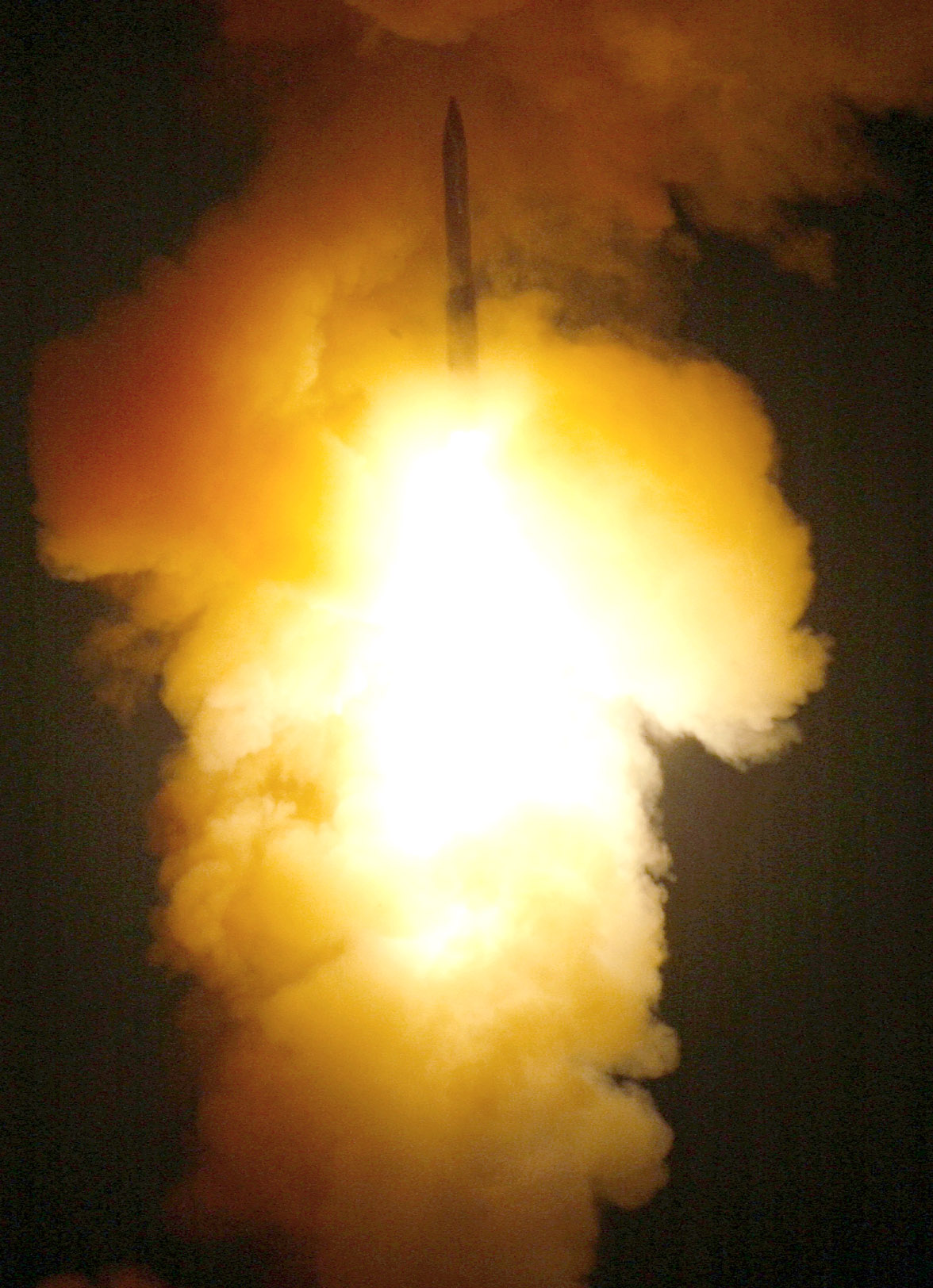
These are not simple questions. In fact, two of the tests, involving missiles and the codes that would be used to launch them, are open-book exams, according to former launch officers, also known as missileers. But having thousands of pages of technical orders on Air Force intercontinental ballistic missile ops isn’t a lot of help, unless you know where to look. The third test—emergency war orders—is closed-book, given in a classified classroom known as “the vault,” and is the toughest of the lot. Most of the tests are multiple-choice, with some fill-in-the-blanks thrown in. They range from 20 to 30 questions, and take about 90 minutes, according to former ICBMers (and no, a #2 pencil is not required).
Scoring 100% on these tests has been the only way to earn promotions within the missile force, and possibly escape from it, ex-Air Force missileers say. Most who serve in the underground bunkers overseeing the nation’s fleet of 450 Minuteman III missiles did not volunteer for the assignment, and many want to leave. Air Force officials say that the missiles’ security has never been jeopardized, and that the tests are a minor element of crew training. Yet integrity is supposed to be non-negotiable in a force that boasts “perfection is the standard.”
The problems with the ICBM force, military and outside experts say, stem from the Cold War’s end and the pressures of the nation’s post-9/11 conflicts. Those twin challenges have dulled the glory and pride once associated with the nuclear mission. “Many current senior Air Force leaders interviewed were cynical about the nuclear mission, its future, and its true (versus publicly stated) priority to the Air Force,” a 2012 Air Force report said.
The pressure to cheat can be intense: Some tests were scored to two decimal places—99.44%, for example, like the purported purity of Ivory Soap. “The cheating is pervasive,” says a former Minuteman crew operator who left the service in 2010. “It’s pervasive because the leadership places so much emphasis on rote test scores to advance.” In the wake of the recent scandal at Malmstrom, airmen retook tests under intense scrutiny to ensure there was no cheating; the average test score was 95.5%. “So they’re not cheating to pass —they’re cheating to get 100s because so much emphasis is placed on test scores to advance,” this former missileer says.
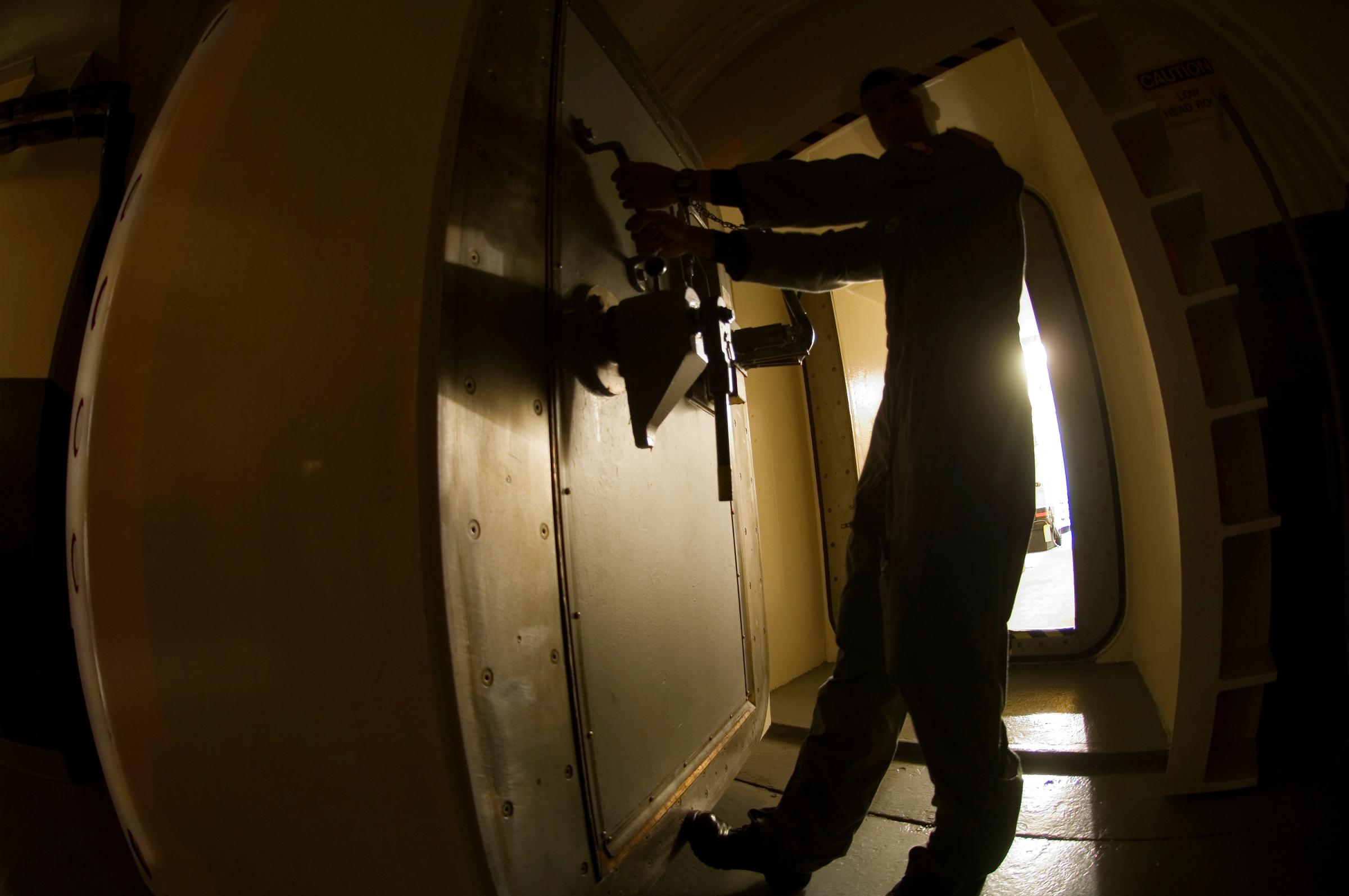
Most tests are taken by groups of 30 to 40 airmen at the missiles’ home base. Three tests monthly per person means 36 of these tests annually, plus additional inspections and alert drills. Like any group that works together under unrelenting pressure, there is an ethos to help your comrades, former missileers say.
“They’re a team in the capsule, and the five capsules together are a team out at the squadron,” says the officer who left in 2010. “When faced with the need to score 100% to advance in the missile career field, well, guess what, they’re going to bind together and act as a unit to meet that challenge together.”
Early test-takers would share the answers with those taking the tests later. “Answer keys” were drafted, listing the precise answers, or a simple count—”the test has four As [answers], six Bs, eight Cs and two Ds,” says the ex-Air Force officer who left in 2011. The missileers shared such “gouge” via paper—tucked into flight-suit pockets for surreptitious glances during the test—or via cell phones.
Cheating was encouraged by higher-ups. “The commander would sit down with you and say, `These tests are ridiculous—you can try to do it all by yourself, which is noble, but you’ll but you’ll never be promoted,'” says the missiler who left the service in 2011. “There was times I was saved from failing by cheating. The testing got so ridiculous that it was no longer testing your ability to be a missile operator—it was testing your ability to take tests.”
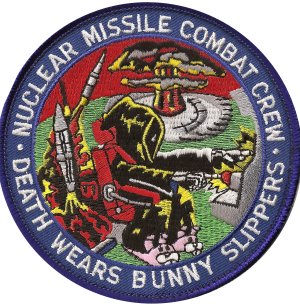
The higher-ranking squadron and group commanders played along. “Some of the colonels were so lazy they’d call and tell me to fill in the answers for them,” the ex-missileer said of their quarterly recertification tests. “I very rarely saw the colonels take the test honestly.”
A second former missileer agrees. “The higher-ups generally don’t hold squadron and group commanders responsible,” he says. “The system is so ingrained with this poisonous mentality that your generals and colonels—all those who have succeeded and been promoted in nukes—are the ones who have excelled in this environment, and so they perpetuate it.”
Some senior officers figured out what was happening. “The colonels caught on that there was some kind of cheating going on, so we started getting multiple test versions,” says the officer who left in 2011. “They’d tell us: `Don’t cheat off your neighbor—we have different tests.'” But the changes were relatively modest—mostly, questions were just moved around—and cheating persisted. The cheating could be deduced when higher headquarters would send in their own tests and test-givers, and more airmen would flunk.
This led to disillusion. “You get into a situation where being a good officer and being a good missileer are mutually exclusive,” says Tim Cerniglia, who served on a MX Peacekeeper crew at F.E. Warren in 1997-99 and says he remains in touch with currently-serving ICBM operators.
What’s worse than the emphasis on perfect scores is what it hides, the officer who left in 2010 says. “Many missileers were bad test takers and thought to be bad missileers, but they were the best,” he says. “These tests are supposed to determine whether you’re fit to be a leader, an instructor or an evaluator, but it has nothing to do with real leadership.”
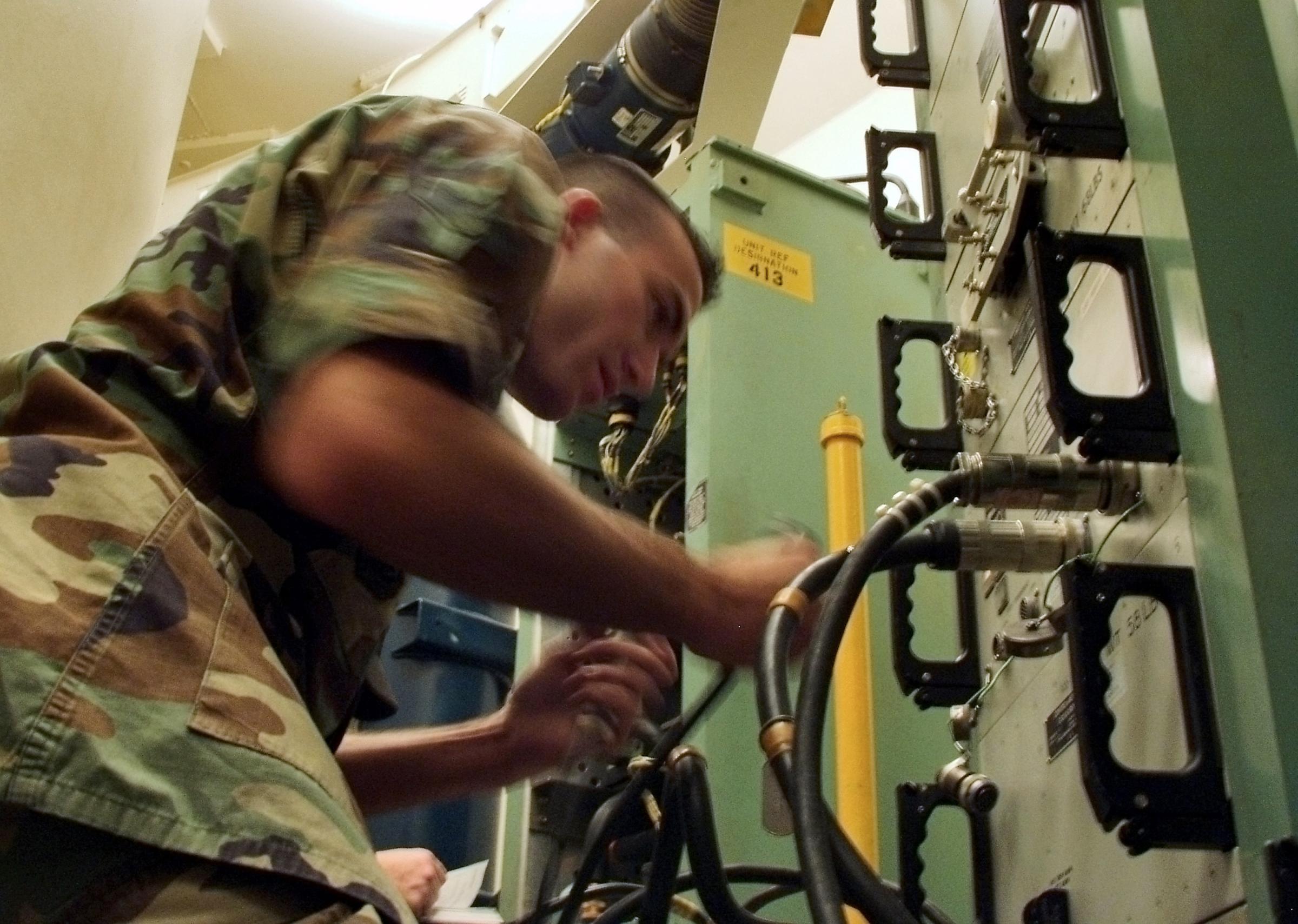
Part of the problem may be the shifting responsibility for the care and feeding of the ICBM force. Over the past two decades, the Air Force has moved command of the missiles around like an unwanted child. They bounced from Curtis LeMay’s Strategic Air Command, where they had been since becoming operational in 1959, to Air Combat Command in 1992. Then they moved to Space Command in 1993, and finally to Global Strike Command in 2009, created as a mini-SAC following earlier nuclear snafus involving misplaced nuclear weapons and components. As a result of those mishaps, the pace and difficulty of testing and inspections picked up. “The inspections are so frequent,” a 2011 Pentagon report noted, “that the unit has neither enough time nor resources to correct deficiencies.”
The cheating is the latest in a string of embarrassing revelations concerning the nation’s nuclear forces. The Air Force is investigating three Minuteman airmen, two of whom also are under investigator for cheating, for suspected drug use. Missileers have repeatedly left their capsules’ blast doors open, violating regulations designed to prevent unauthorized entry. The service fired Major General Michael Carey—in charge of all the nation’s ICBMs—last October after an official trip to Moscow where he drank excessively and cavorted with “suspect” women. During an en route layover at a Swiss airport, witnesses told Pentagon investigators that Carey “appeared drunk and, in the public area, talked loudly about the importance of his position as commander of the only operational nuclear force in the world and that he saves the world from war every day.” The Navy revealed Feb. 4 that it is looking into allegations that enlisted sailors cheated on tests involving the nuclear reactors that power its submarines and aircraft carriers.
Back in the missile fields, former officers say there needs to be a wholesale shakeup in how missile commanders are selected and promoted. “This pressure-cooker environment has just grown so unhealthy,” says the officer who left in 2010 and believes the nation needs to maintain its ICBM force. “Squadron commanders aren’t expected to lead—they expect their people to get 100% on every test and every evaluation, and they expect perfection, but they’re not expected to meet those standards themselves,” he says. “They’d rather sit in their office reading emails on their Blackberries than leading from the front.”
It has become a self-perpetuating caste. “It’s command incest—you get a bad leader who finds a subordinate who’s just as bad as he is, and he promotes that subordinate, and on and on. It’s been going on for four decades now and so you mostly get a crop of leaders who are more interested in their careers than they are in actually leading,” he says. “Leadership is a human endeavor, and the Air Force takes the humanity out of it.”
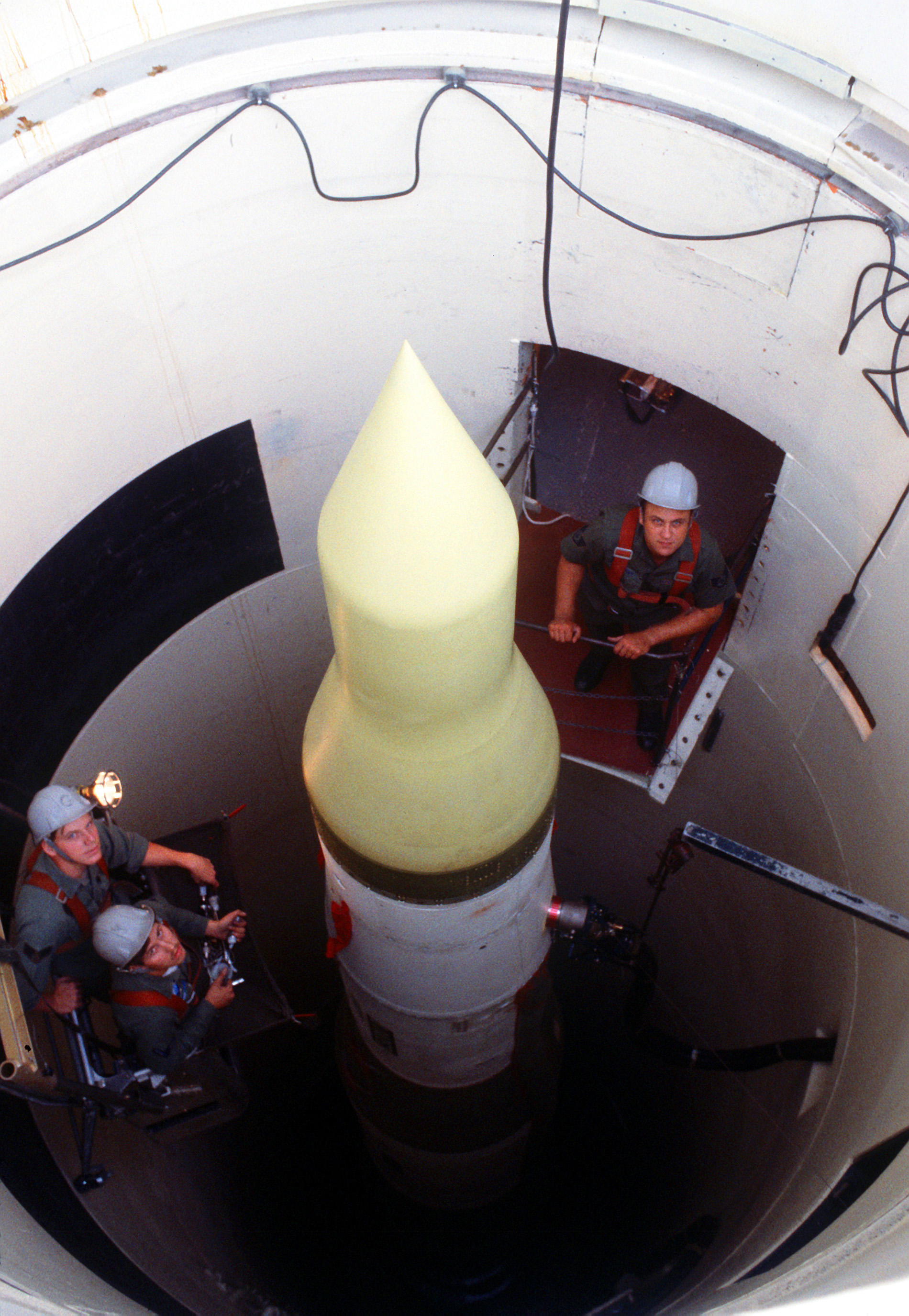
In a world of city-killing ICBMs, and the $1 billion spent annually operating them, it’s the little slights that send big signals to the nation’s ICBM crews. “They perceive a lack of knowledge of, and respect for, their mission from within the larger Air Force,” that 2011 Pentagon report said. Service-wide education, recruiting and PR “seem to ignore the ballistic missile mission.” Their commander wears only three stars—a lieutenant general—unlike the four-star generals who command other fighting units. “This is widely noted in the strategic operating forces,” the Defense Science Board study said. A final indignity: “As a missile crew watches the computer display for their mission briefing before starting each period of duty, they see the official classified Air Force screen saver which features a single weapons system—an F-22” fighter (which, like the ICBM force, has never seen combat).
“I believe that we do in fact have some systemic problems in the force,” Air Force Secretary Deborah Lee James said Wednesday. “The need for perfection has created a climate of what I think is undue stress and fear among the missileers about their futures.” Her service is pondering how to restore a sense of mission to missile duty, including bonuses, medals and patching the “leaking roofs” that she saw on her recent visits to the nation’s ICBM bases at Malmstrom, Minot, N.D., and F.E. Warren, Wyo. Defense Secretary Chuck Hagel told missileers at F.E. Warren on Jan. 9 that the Pentagon plans to develop a Minuteman replacement “to keep that deterrent stronger than it’s ever been.” He has ordered a pair of investigations into the missile force’s culture and management to see what changes are needed to restore its sense of duty and pride.
Given the missiles’ Cold War bloodline, it comes as no surprise in a post-Cold War world that ICBM backers don’t see their arsenal as a relic. “I don’t think we’re any more a Cold War force than an aircraft carrier, or Special Ops, or the UH-1 helicopter,” Lieut. General James Kowalksi, then-chief of Air Force Global Strike Command, said in July. A Russian attack has become such a “remote” possibility that it’s “hardly worth discussing,” he added. “The greatest risk to my force is an accident. The greatest risk to my force is doing something stupid.”
Kowalski became the No. 2 officer in U.S. Strategic Command in October, overseeing the nation’s entire nuclear arsenal. He took the post after President Obama fired Vice Admiral Tim Giardina for allegedly gambling in an Iowa casino with counterfeit chips. The charge—a felony—happened at Horseshoe Council Bluffs Casino, a 15-minute drive across the Missouri River from the nation’s nuclear headquarters.
More Must-Reads From TIME
- The 100 Most Influential People of 2024
- Coco Gauff Is Playing for Herself Now
- Scenes From Pro-Palestinian Encampments Across U.S. Universities
- 6 Compliments That Land Every Time
- If You're Dating Right Now , You're Brave: Column
- The AI That Could Heal a Divided Internet
- Fallout Is a Brilliant Model for the Future of Video Game Adaptations
- Want Weekly Recs on What to Watch, Read, and More? Sign Up for Worth Your Time
Contact us at letters@time.com